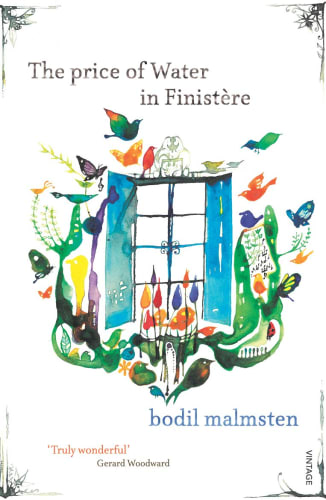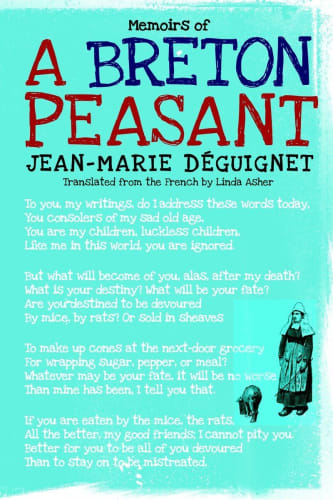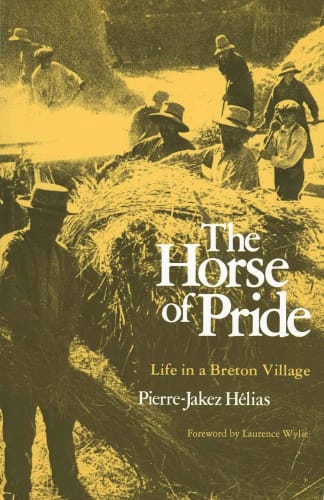Memoirs of a Breton Peasant
Jean-Marie Deguignet, 2004
Jean-Marie Déguignet is a stoic complainer who writes in a very contemporary voice, not your typical Breton peasant. His observations are harsh and critical, but through them, we learn about rural life in nineteenth-century Finistére: the people, language, and culture (ignorant, god-fearing, stubborn, and superstitious); the terrible beginnings of industrialization; terrible diets and terrible jobs; arranged marriages; the powers of mothers-in-law; the prevalence of lice, poverty, lack of education, legends, fables, and myths; the omniscient power of the church and landlords—and their crimes and thievery. He’s an anti-cleric in this most Catholic of lands. He’s a Republican in a time and place of monarchists. He understands the world as a scientist, through observation and experience, not like his dumb-ass peers, who explain the “good” that happens as God’s will and the “bad” as Devil’s tricks. He learned to read and write Breton, French, and Latin. He was a beggar (an actual occupation), cowherd, gardener, inside domestic, and laborer on a model teaching farm where he learned modern methods of agriculture. Later in life, he owned a bar, had a license to sell tobacco, sold insurance, and did odd jobs. At nineteen, he volunteered for the army and served fifteen years, becoming a sergeant and traveling through France to Sebastopol (Crimean War), Italy (war of liberation), Algeria, Egypt, Jerusalem, and Mexico (Maximillian). This was when peasants rarely traveled more than ten kilometers from their homes and were illiterate in their own language. For the last fifteen years of his life, he lived alone and poor. He died as he lived, fighting the church and losing. He wrote about everything.





















